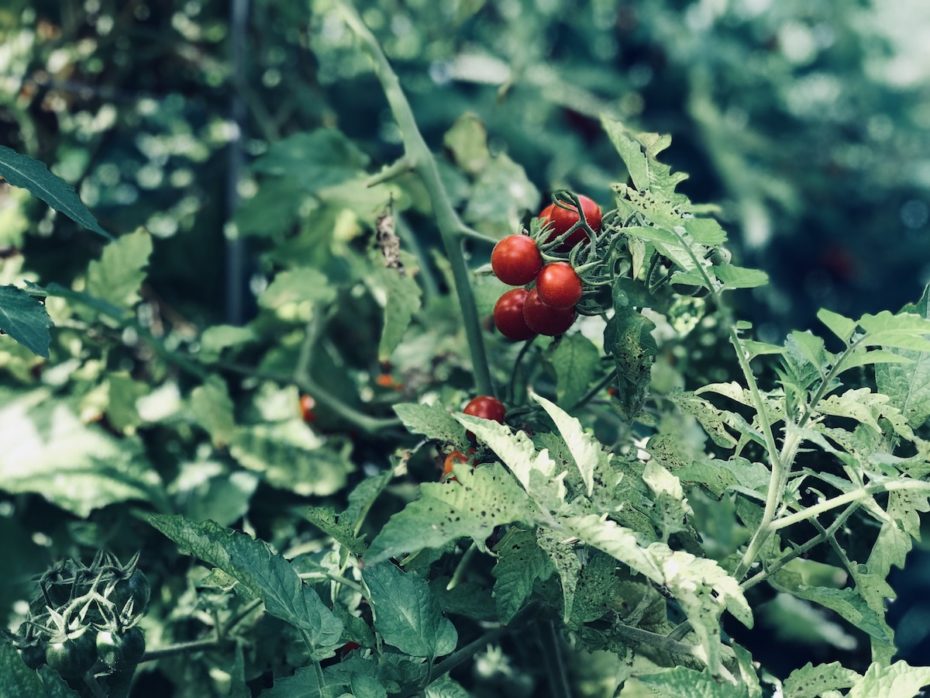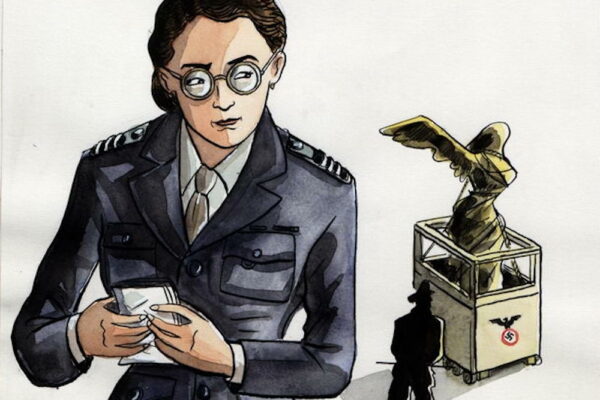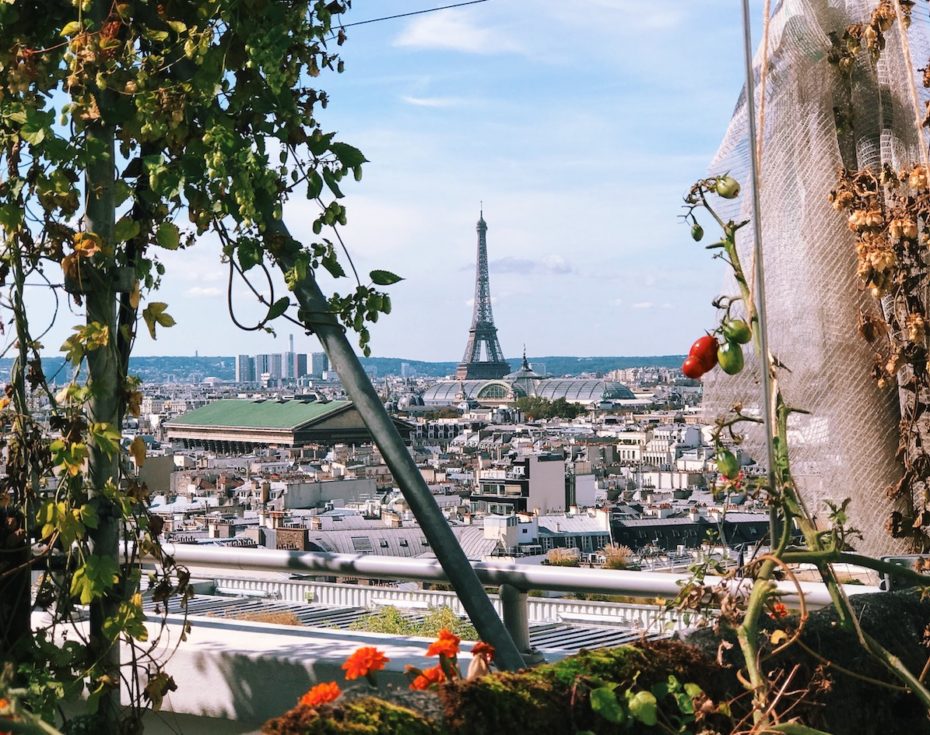
In the early hours of the morning at Galeries Lafayette in Paris, the elevator doors open on the ground floor and out march a team of country bumpkins lugging crates of plump tomatoes, strawberries, fresh herbs and edible floIMG_0438wers, through the perfumery section, past the gleaming cosmetic counters and out the front entrance. They’re met by the bewildered faces of sales staff trickling into work for their morning shift, who have no idea there’s a 1200 m² farm operating right above their heads.
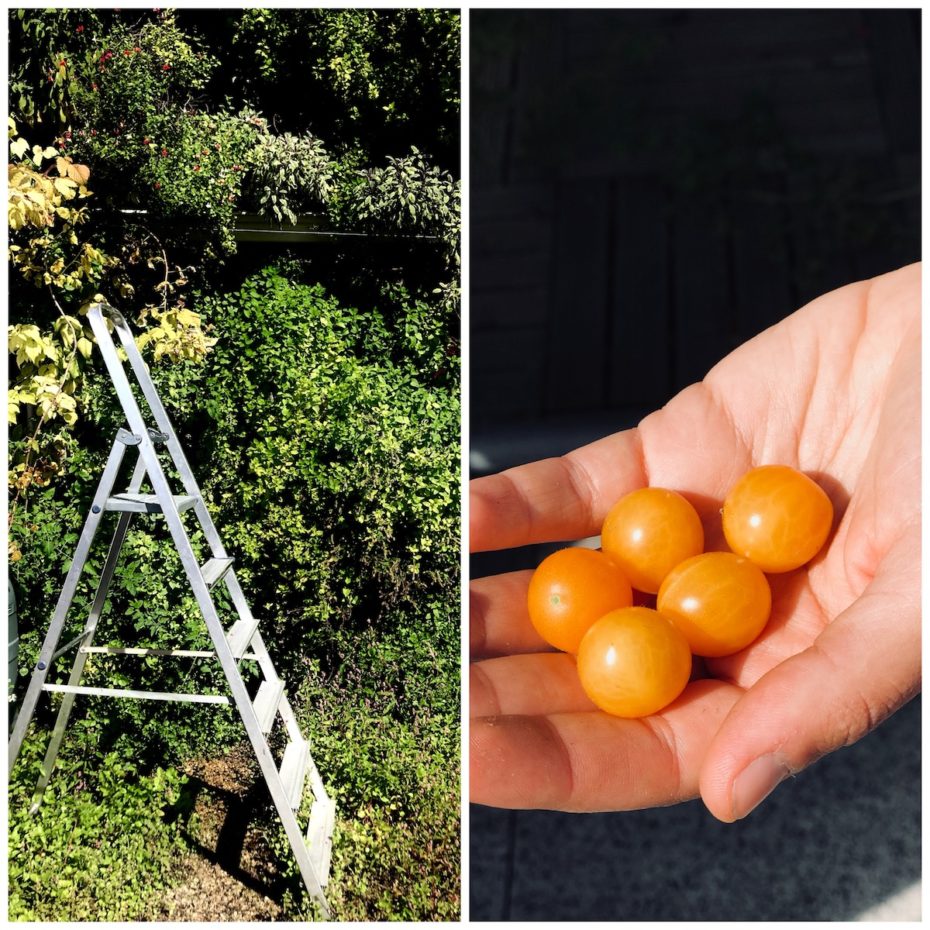
The security guy leading me through the labyrinthine office corridors of the 8th floor, a private lair of the iconic department store, is as lost as I am. He’s been working here for 6 months, but like me, this will be his first time discovering the secret gardens of Galeries Lafayette. I’ve booked myself in for the little-known bi-weekly tours offered by the store thanks to its partnership with Sous les Fraises (Under the Strawberries), a pioneering start-up specializing in organic food production in urban areas.
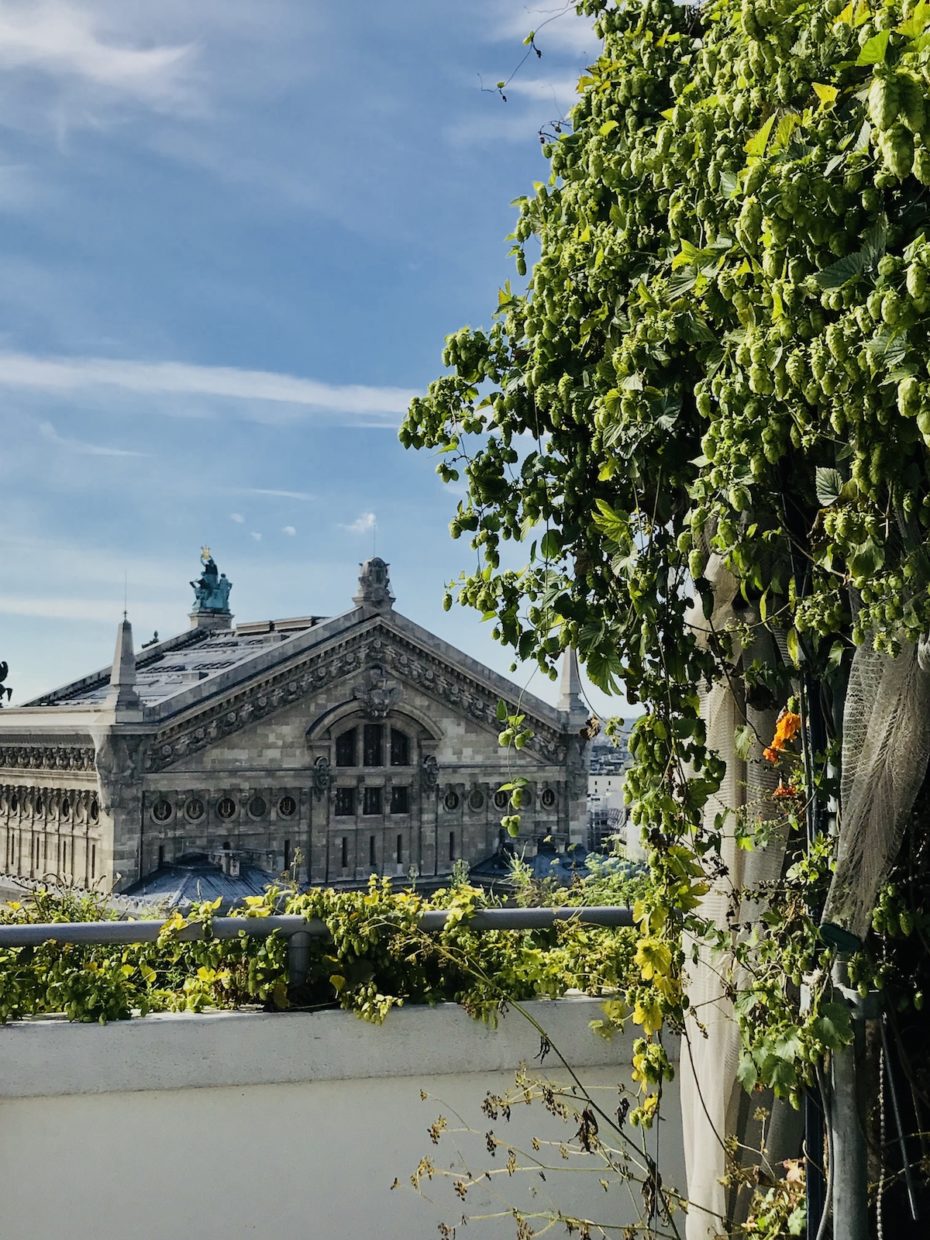
The tours are open to anyone and everyone, but I seem to be one of the few Parisians curious about Parisian farms hiding atop department stores on this warm September morning. In fact, it’s just me, one other lady and to my surprise, a household-name supermodel and her two kids eagerly anticipating the visit.
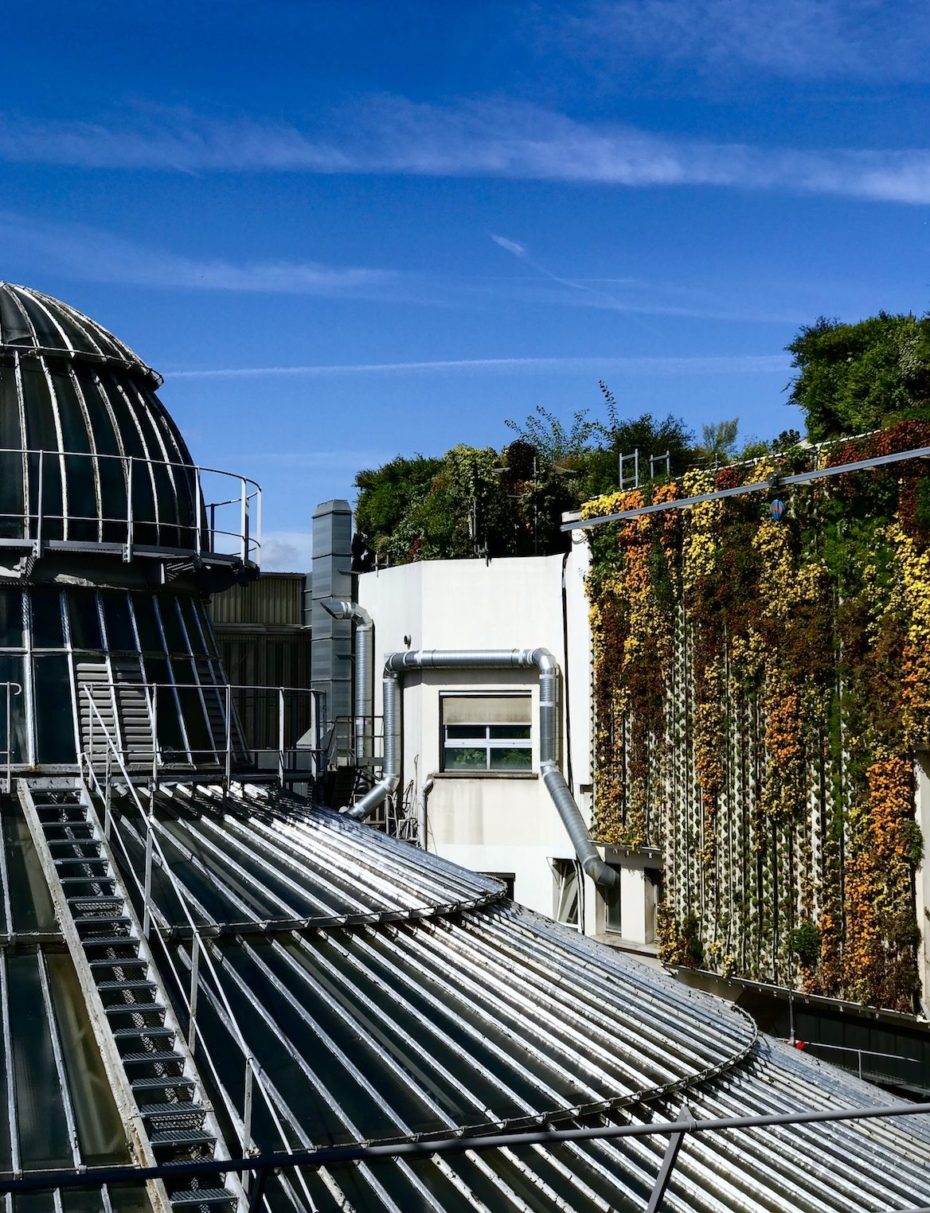
Sequestered behind a wall of cascading greenery, one floor higher than the department store’s public terrace café, the view of the Eiffel Tower up here is even more impressive because it’s framed by the curling vines of cherry tomatoes. Throughout our visit, the French iron lady plays peekaboo with us as we walk through cocoons of raspberry, rosemary, hop, thyme and mint, all thriving around us.
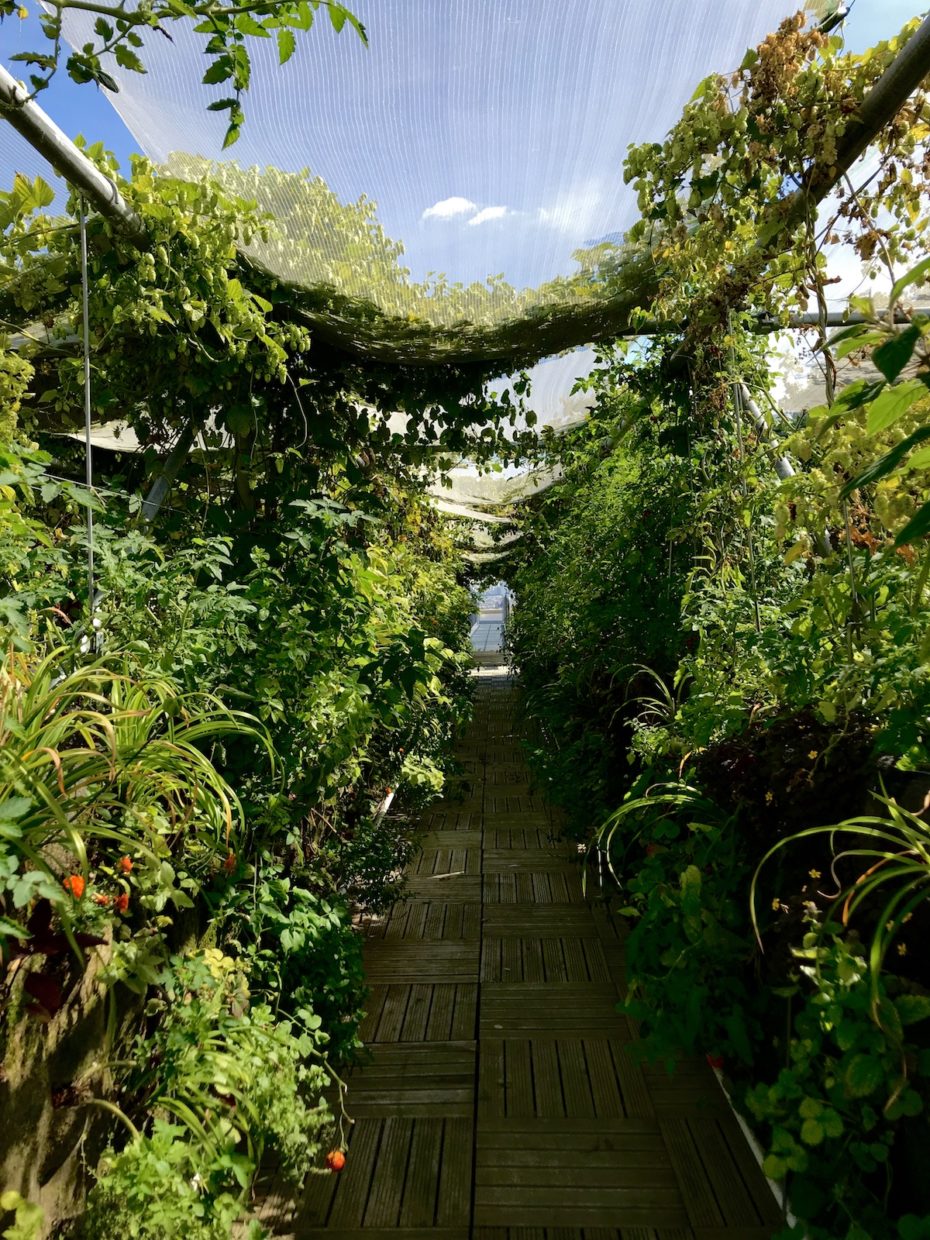
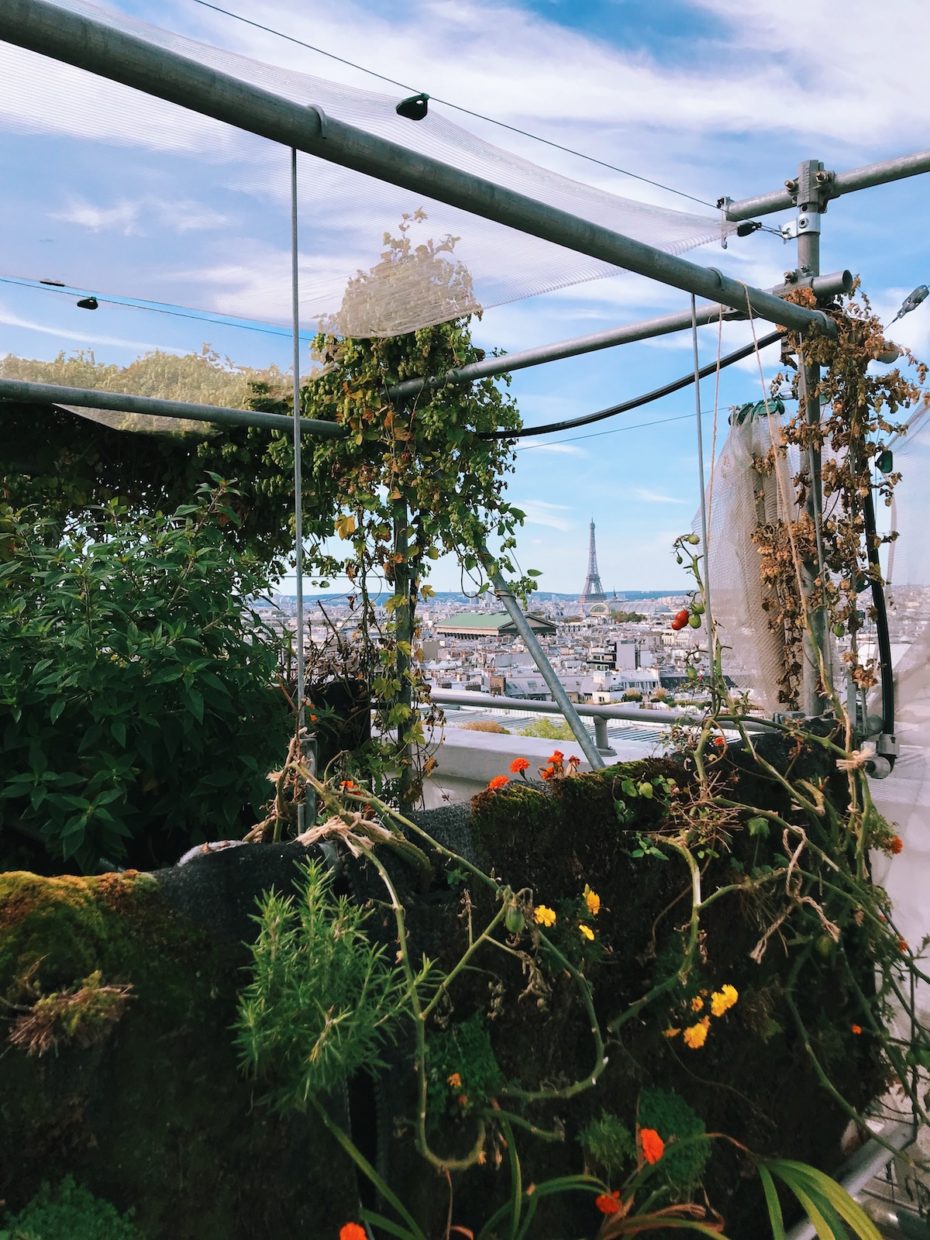
As we pop berries in our mouths and take in the aromas of familiar and unfamiliar herbs, the story of the farm unfolds…
We’re told that plants really do talk to each other here. Some 18,000 of them are all cleverly and vitally connected, cultivated out of the rooftop’s “green walls” (organic wool and hemp blankets with seed pockets). The chemical-free and soil-free system has a closed-circuit irrigation which enables the plants to send messages to each other through the water molecules. If one species is being attacked by a threatening pest, they can warn other plants on the rooftop to ‘hold onto their hats’ and prepare to protect themselves.
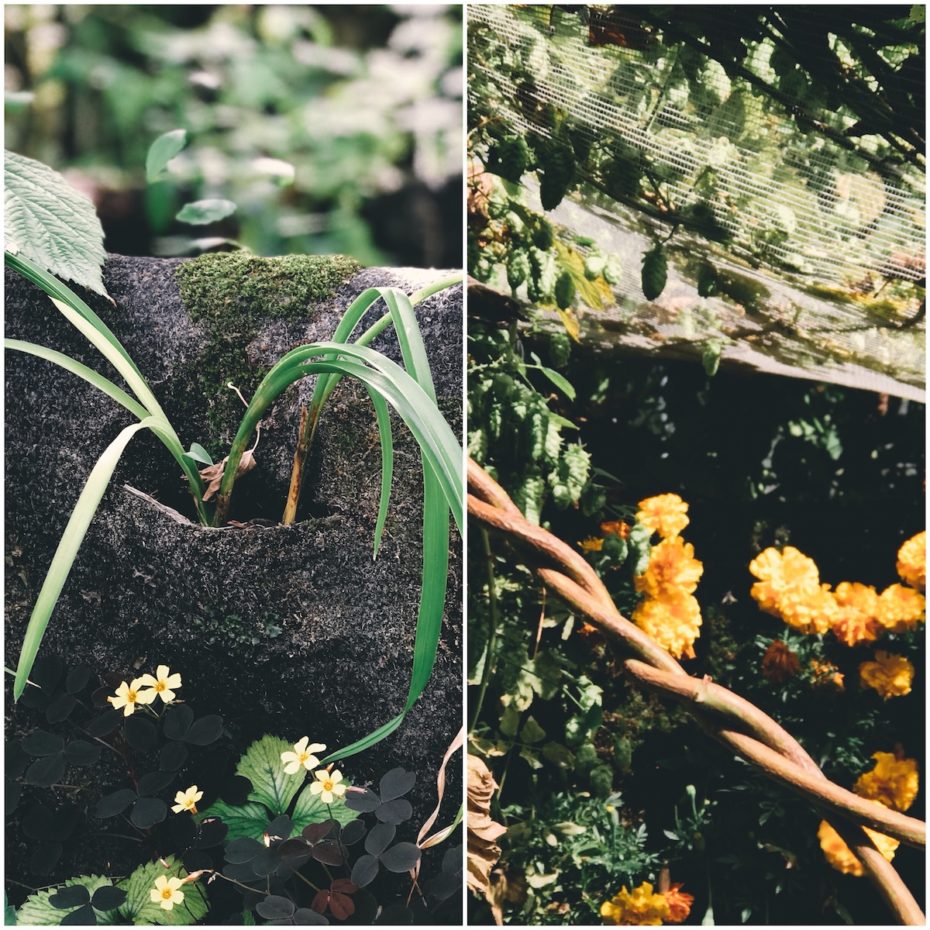
Just like in the wild, they’re sharing and mixing resources. There is no section of this urban farm where, for example, just thyme is growing, or only strawberries have been planted. As Sous les Fraises explains, it’s not natural to have fields of the same plant growing en masse for ease of production, and this start-up wants to stick to mother nature’s rules as best they can.
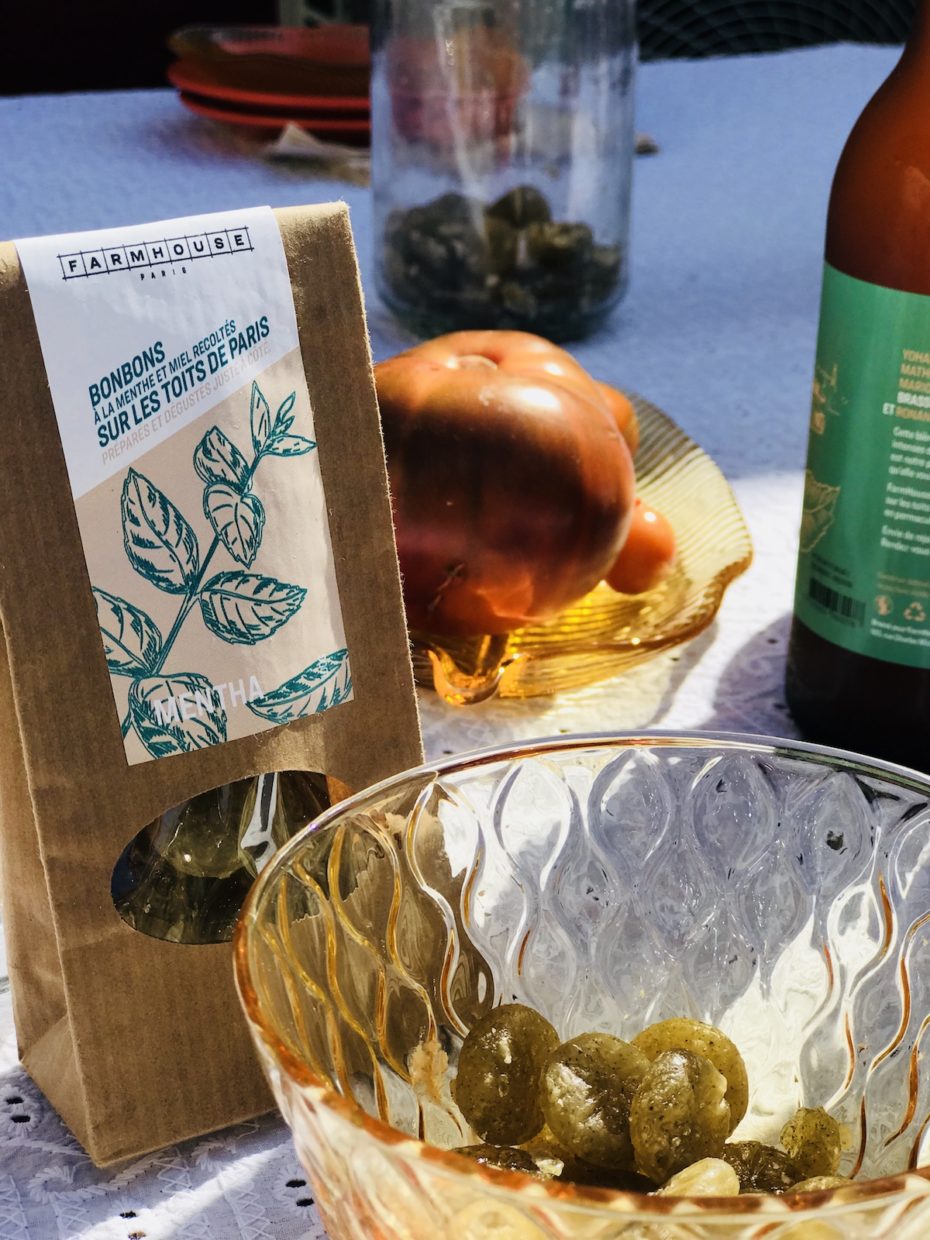
You might expect that with such rules comes a limitation on how much the farm can produce, but the numbers are staggering. To give you an idea, 6 tons of tomatoes are brought down from this rooftop a year and 18,000 bottles of beer are produced from the garden’s bountiful supply of hop, a flower used primarily as a bittering, flavouring and stability agent.
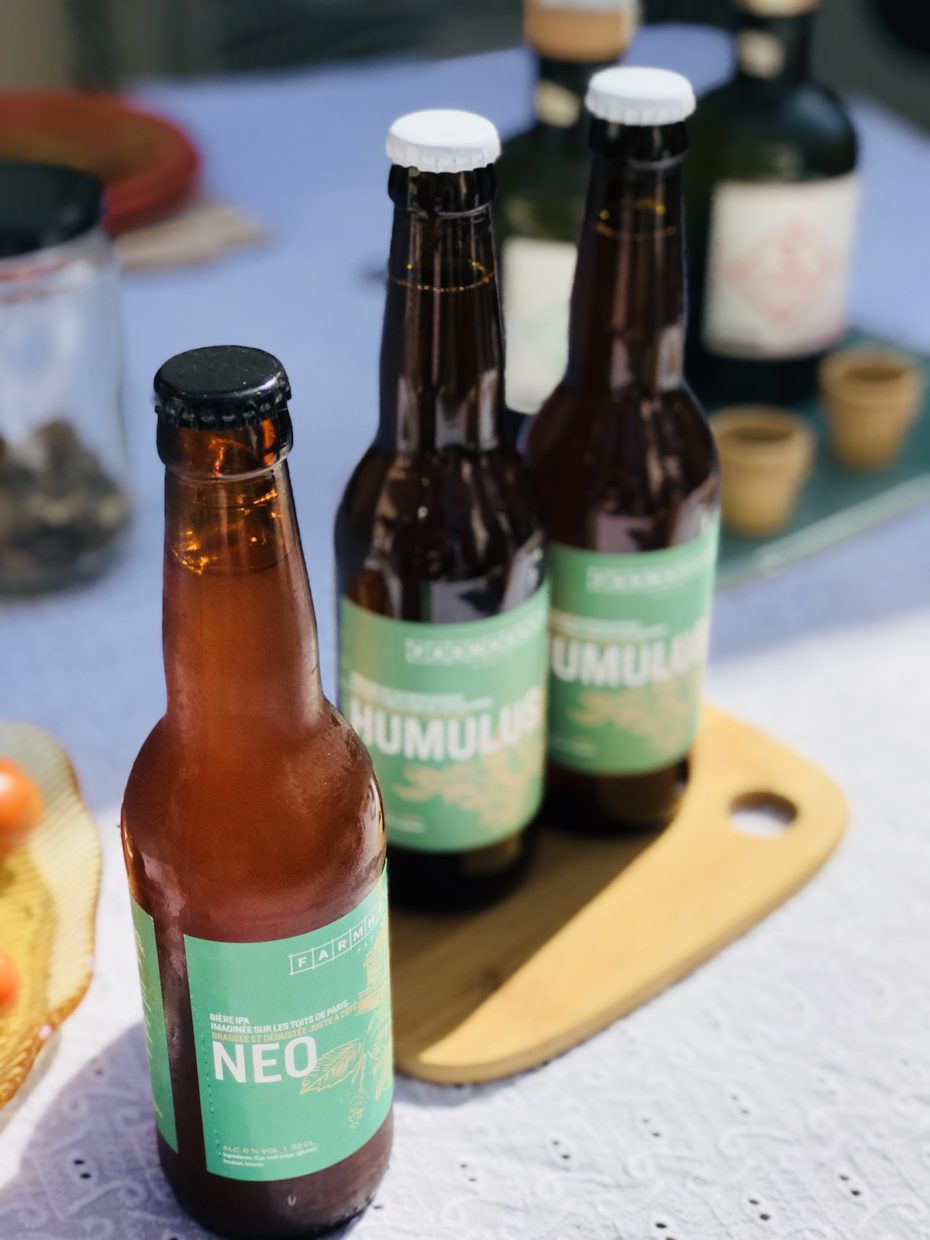
Some of the city’s most decorated chefs come here in the mornings to pick out their secret ingredients, from edible flowers to exotic fruits and vegetables. But they have to be committed. Sous les Fraises chooses their partners wisely, refusing chefs and restaurants looking to make an organic farm-to-table PR stunt with a one-time visit to the farm.
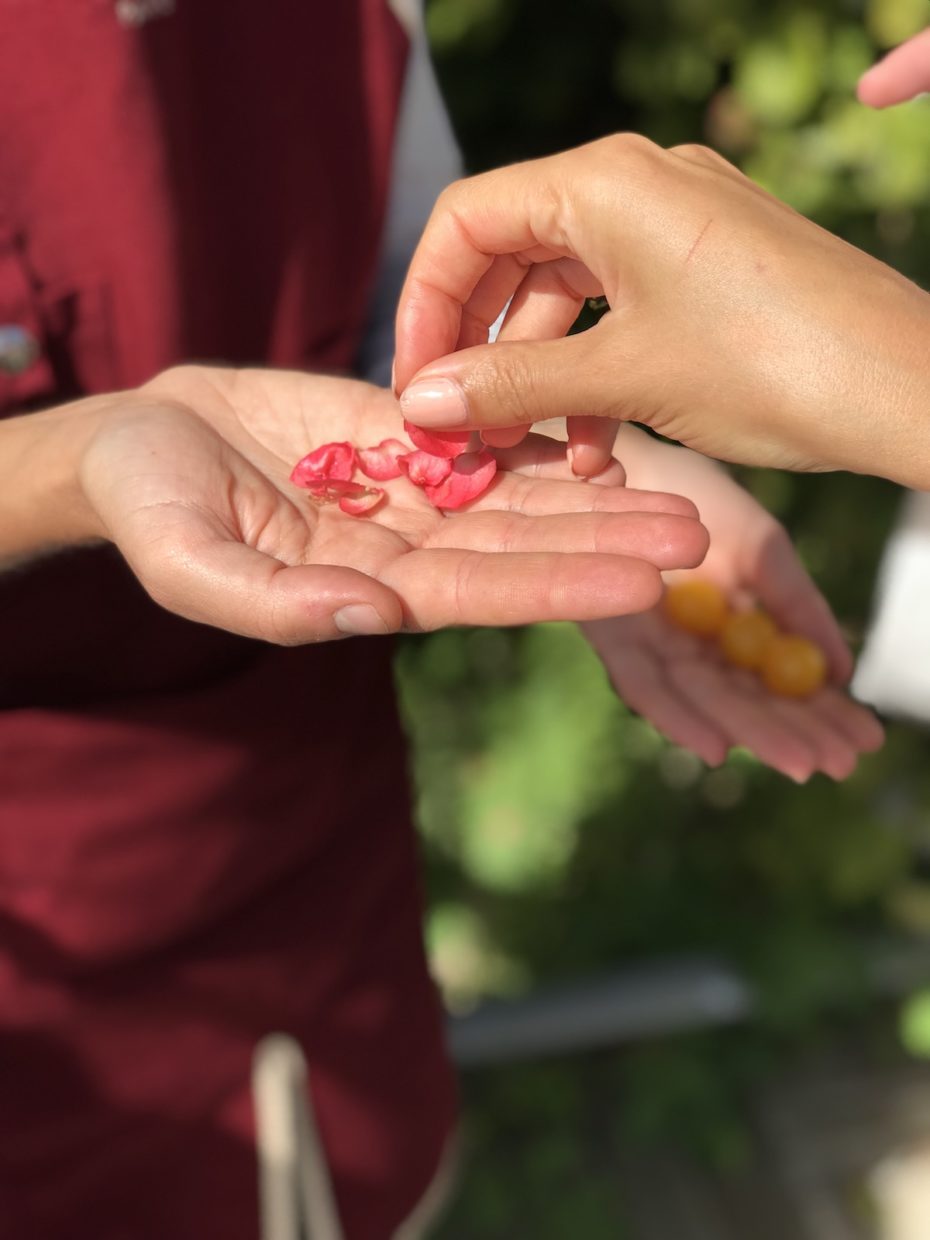
Partnerships are made for the whole year; an authentic relationship where the chef is dependent on the rooftop’s production for their menus, and the farmers work hard to guarantee a fresh, continuous supply of organic, clean produce with all its flavour still intact. Paris’ other historic department store in the Marais, BHV, also has a little-known 400m² rooftop farm run by Sous les Fraises. The start-up also collaborates with governments and private companies to help cities “go green and contribute to a richer, more productive, and healthier environment”. Urban farming is flourishing in Paris and the city aims to cover the city’s rooftops and walls with 100 hectares (247 acres) of vegetation by 2020.
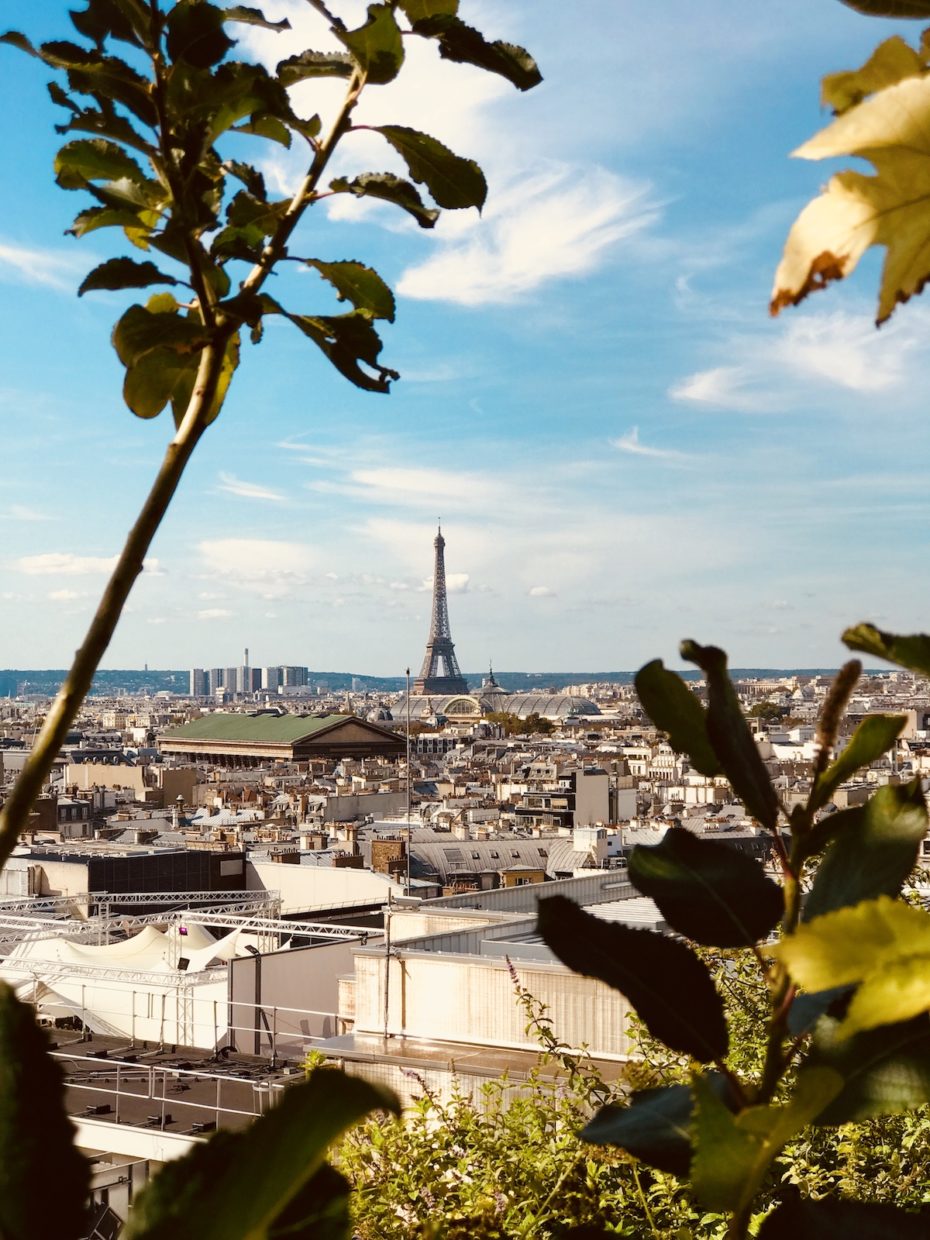
Our morning visit ends with a tasting of products produced by companies that depend on the farm. We crack open a cold one from the Parisian microbrewery that prides itself in crafting beer from a Parisian rooftop. We’re each gifted a tote bag with a packet of nougat infused with the garden’s herbs and honey from the neighbouring bees that live on the roof of the Paris opera house just over the road.
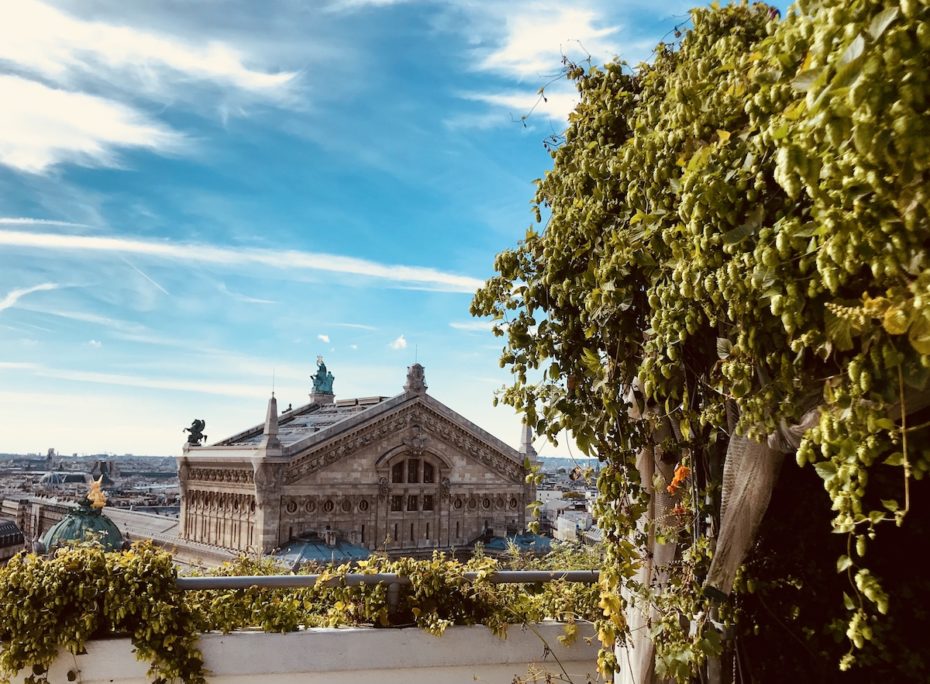
Close in proximity to their hives, just like us Parisians, the bees find the Galeries Lafayette very convenient for shopping– lucky for them there’s a 100% discount on pollen and nectar all summer long. I part with a swig from a fancy flask of vodka, whose ingredients from the farm include strawberry, raspberry, sage, Moroccan mint, lemon thyme, orange thyme, rosemary and two varieties of geranium.
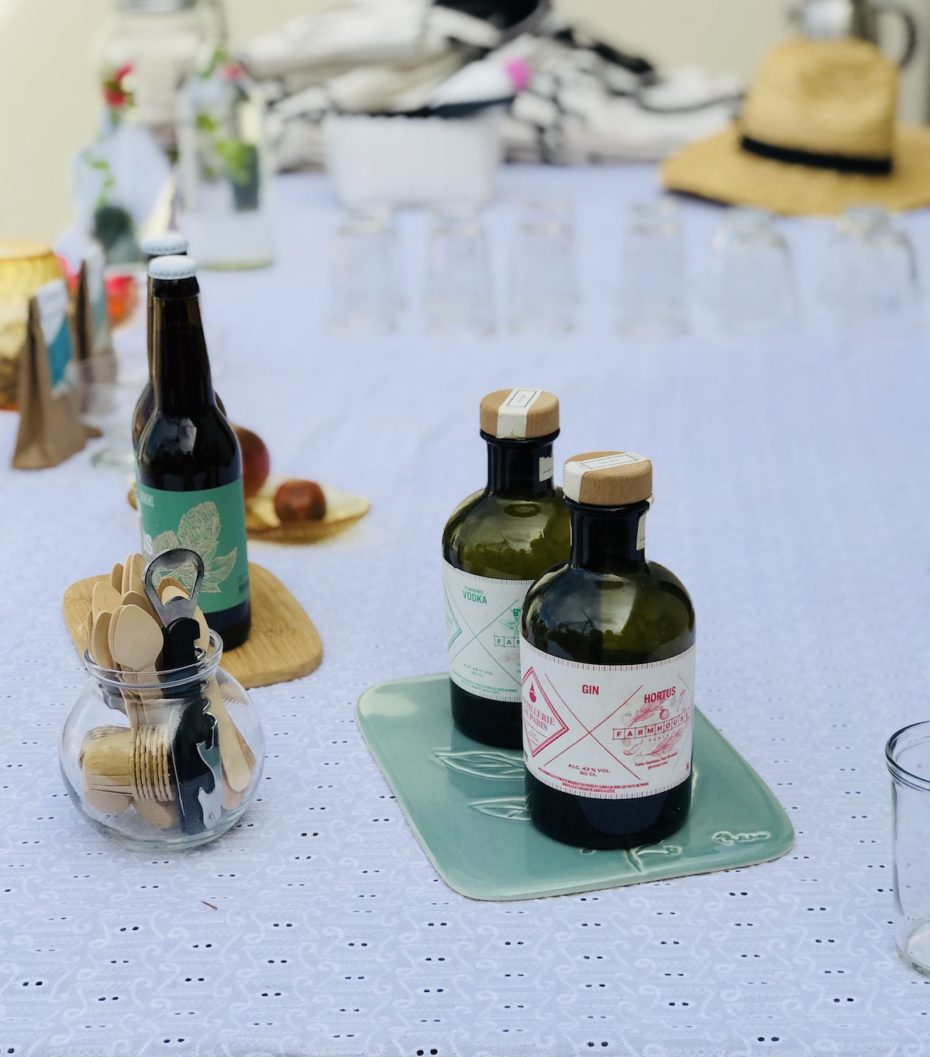
As we speak, the rooftop farm and its four other sister projects around Paris and France are tackling this season’s final harvest. Soon the small team at Sous les Fraises will begin planting the winter season’s vegetables. It’s a less-demanding period for the farmers when they can get a few days of well-deserved rest. Visits for those curious will continue throughout the year however, unless mother nature says otherwise.
